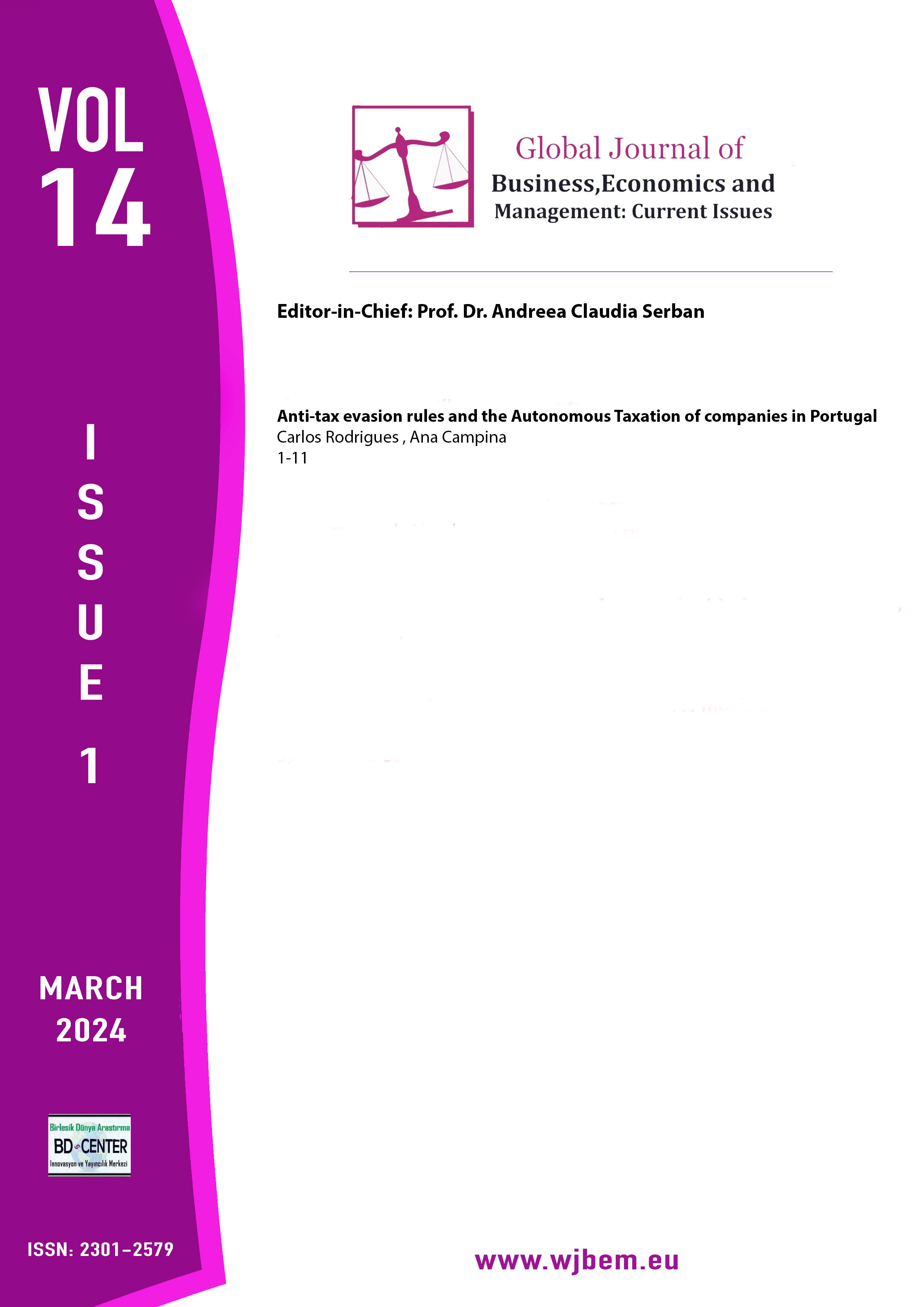Anti-tax evasion rules and the Autonomous Taxation of companies in Portugal
Main Article Content
Abstract
States, in their tax systems, create anti-tax evasion rules to try to eliminate the possibility of taxpayers engaging in behavior that harms the state in collecting the taxes that each citizen or company owes. Anti-tax evasion rules also aim to ensure that everyone contributes to public spending according to their real ability to pay, thus respecting the principle of equal contribution based on real and effective economic and financial capacity. Aware that there are companies that carry out harmful acts and thus reduce their economic and financial capacity to try to reduce their tax burden in terms of corporate income tax, the Portuguese legislator introduced autonomous taxation in corporate income tax, in the corporate income tax code, to try to eliminate belligerent behavior on the part of companies. Using the statistical data from the Autoridade Tributária e Aduaneira, and based on statistics from the tax and customs authority, the study demonstrates the financial burden on companies that bear this type of taxation and compare it with the "Corporate Income Tax" charged annually by the State.
Keywords: Anti-abuse rules; anti-avoidance rules; autonomous taxation; corporate tax; corporate taxation
Downloads
Article Details

This work is licensed under a Creative Commons Attribution-NonCommercial-NoDerivatives 4.0 International License.
The Global Journal of Business Economics and Management: Current Issues is an open-access journal. The copyright holder is the author or authors. Licensee: Birlesik Dunya Yenilik Arastirma ve Yayincilik Merkezi, North Nicosia, Cyprus. All articles can be downloaded free of charge. Articles published in the Journal are Open-Access articles distributed under the CC-BY license [Attribution 4.0 International (CC BY 4.0)].

